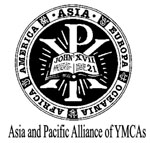|
As a part of the curriculum each participant had to prepare and present a Re-entry Plan elaborating his or her commitment to work on a special area of social relevance in their own YMCAs after their return.
We wish to thank the Chinese YMCA of Hong Kong, the YMCA of Hong Kong, the Y’s Men International, all the resource persons and staff members of APAY for their whole hearted cooperation and support to make this event a successful one.
DUNCAN CHOWDHURY
30th Advanced Studies Program Participants
General Secretary’s Message on Advanced Studies Program

We have just finished the 30th Advanced Studies program (ASP) in Hong Kong. This year we had 11 participants from 10 movements. I felt various important works of the each YMCA in their own context. I would like to share what I thought from the reports that each participant expressed in the ASP.
 We had two participants from China, Ms. Tian Tian from Guangzhou and Ms. Xu Shan from Xiamen. China YMCA is unique in a way that they have so many volunteers. Two of them, their jobs are to create opportunities and programs for those volunteers. For example, in Guangzhou YMCA, there are over 8,000 volunteers in their three community centers. They provide volunteer services to the elderly, children and the handicapped, and have many community service programs. We had two participants from China, Ms. Tian Tian from Guangzhou and Ms. Xu Shan from Xiamen. China YMCA is unique in a way that they have so many volunteers. Two of them, their jobs are to create opportunities and programs for those volunteers. For example, in Guangzhou YMCA, there are over 8,000 volunteers in their three community centers. They provide volunteer services to the elderly, children and the handicapped, and have many community service programs.
Mr. Hettiyadurage Prassana from Sri Lanka, his work has been focused on environmental program and disaster management work since there are so many disasters in the country. Many local YMCAs have formed its own disaster management commit-tees and prepared for potential disasters to help the communities.
Ms. Sheena Awatin from Manila, Philippines is in charge of programs for children. In the Philippines, there are YMCA groups in many primary schools, high schools (Hi Y) and colleges (College Y). Many programs are organized for those age groups. She wants to introduce the Global Citizenship Education to the teachers in these schools and high schools.
Ms. Khon Mai from Myikyina, Myanmar said the situation of Internal Displaced People (IDP). Due to the internal conflict in the some tribal areas, there are thousands of refugees away from their own houses. She expressed the needs to develop educational programs in the IDP areas by training and sending those volunteer teachers for the minimum education for children.
Mr. Nipun Sangma from Bangladesh YMCA has a new NGS from this September. He needs to develop strategies in several local YMCAs. He especially focuses on the youth training, formation of youth committees and volunteer activities, and more youth delegations in decision making in YMCAs.
Mr. Lin Chi Keung from Hong Kong, was a school principal of nearly 1,000 students, age 12-17. His passion and vision of his school and his students was so much. His philosophy of education was shared; “motivate the unmotivated”, “If they dream, they can fly”, and importance of learners oriented approach.
Mr. David Samuel from India was called “Pastor” by the other participants. He emphasized Christian mission throughout the Study period. He learned the mission, vision and contemporary issues facing to our communities. He then wants to share it with many YMCAs in his region.
Mr. Chung Dong Keun from Suwan, Korea showed the uniqueness of the Korean YMCA. He introduced the idea of alternative life styles by promoting bicycle riding. It was not a joke, but he was serious. In his YMCA, more than a half of the staff members come to work by bicycles. He himself rides four wheelers with his own feet every day. This riding bicycle movement has been spreading all over in the city. His YMCA is challenging this for “Recreating Heaven of God”, he said.
Mr. Ho Kok Jin from Kuala Lumpur, Malaysian felt mission given to him at the YMCA. He felt important mission for youth development. He wants to reach out more young people and also develop relationship through introducing the great nature that Malaysia has through developing the Alternative tourism.
Finally, Mr. Kenji Akiyama from Osaka, Japan explained the aging situation facing Japan. In 2011, 23% of the population was 65 and above, 10 years later from now, it will be 30%, then in 2050, it will reach to 40%, he said. This is a big challenging issue for all generations. He proposes to conduct various lifelong education for children to the elderly, students and volunteers to explore new way of aging era.
Each Participant has sensed own mission of being in the YMCA. Each YMCA they belong needs to shine as uniqueness and contributing the community in some ways. Creativity and innovation plus sense of strong mission is necessary for each of them to make such YMCAs. We need to learn from good examples in various movements in the area.
KOHEI YAMADA
Training of Trainers in Gender Mainstreaming
As mandated by and as part of the strategic endeavor of the Asia and Pacific Alliance of YMCAs to raise consciousness on gender issues and concerns, sensitize members and leaders in local/national movements, and develop trainers at the respective YMCAs, the Gender Committee organized the first training of trainers in gender mainstreaming for the quadrennial. This workshop aimed to examine and challenge gender stereo-types participants have internalized; devel-op clarity on gender and related concepts; understand gender issues in the context of participants with tools and skills and main-stream gender equity in their organization; and develop facilitation skills to take the concerns forward.
Co-hosted by the National Council of YMCAs of Indonesia, the workshop was participated-in by twenty (20) participants fourteen (14) woman and six (6) man from six national movements including two resource persons/facilitators, Dr. Liza Lamis from Philippines and Ms. Mercy Kappen from Visthar, Bangalore, India and one staff from the Asia and Pacific Alliance of YMCAs.
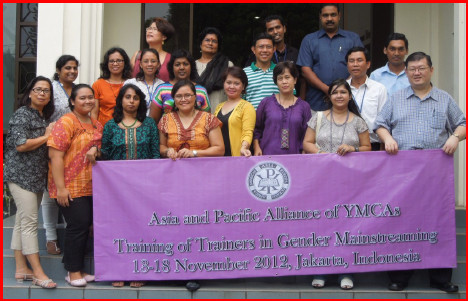 The main resource person/facilitator, Ms. Mercy Kap-pen introduced a ‘problem posing approach’ which was postulated by Paulo Freire in which the facilitator provides the framework for thinking; creative active participants identify common problems and find solutions; facilitator raises questions on why, how and who; participants are active describing analysis, suggesting, deciding and planning; and finally people are actively involved in the social construction of knowledge. This learning approach was helpful and transformative because it is prophetic, hopeful, relevant, affirms people, a means to understand what and who they are and enables in building their future. The main resource person/facilitator, Ms. Mercy Kap-pen introduced a ‘problem posing approach’ which was postulated by Paulo Freire in which the facilitator provides the framework for thinking; creative active participants identify common problems and find solutions; facilitator raises questions on why, how and who; participants are active describing analysis, suggesting, deciding and planning; and finally people are actively involved in the social construction of knowledge. This learning approach was helpful and transformative because it is prophetic, hopeful, relevant, affirms people, a means to understand what and who they are and enables in building their future.
The daily worship and biblical reflections were also helpful for participants to learn about biblical stories and gain new perspective based on the teachings and values shared from the stories of Queen Vashti from the book of Esther; Dinah and unnamed concubine and the story of Sarah and Hagar, both from Old Testament.
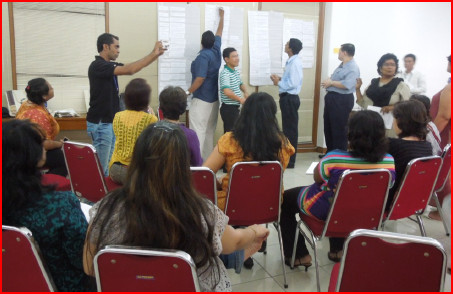 The training provided the participants with many creative learning experiences, tools and materials that maybe used in their own local national training sessions, and also required each participating coun-tries to prepare and share their training plans/modules which they will be implemented at their respective movements. The training provided the participants with many creative learning experiences, tools and materials that maybe used in their own local national training sessions, and also required each participating coun-tries to prepare and share their training plans/modules which they will be implemented at their respective movements.
To further empower and develop the implementing leaders and staff, the Committee recommended that an advance follow-up training be organized; follow-up trainings be held at the national movements and a regional advance training will again be conducted in the coming year.
ELOISA BORREO
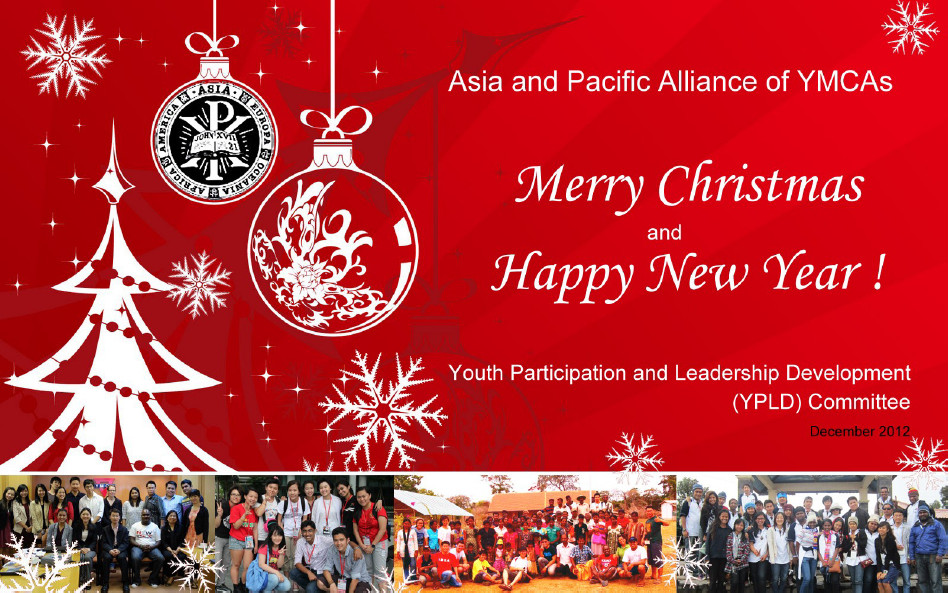
Resource Mobilization Workshop
Taking the challenge of developing a resource mobilization and financial development program in the Asia and Pacific region at the level of the identified national movements was not an easy task. However, given the time, opportunities to learn the concepts and principles, the resources and experiences shared by the volunteer consultants and resource people, and the encouraging support of the World Alliance, the willingness of the World Urban Network (WUN) and the North American YMCAs Development Organization (NAYDO) to connect, identi-fy and support volunteers in the region, the first series of workshops were successfully conducted for the first year. The national movements’ support was provided by each coordinator to organize and set-up all arrangement needed as follows: Mr. Jose Varghese for India; Mr. Charith de Silva for Sri Lanka; and Mr. Pablito Tabucol for Philippines. They are also the key persons to track and follow-up in their respective movements’ progress and feedback to the consultants and the Asia and Pacific Allaince of YMCAs with Mr. Kohei Yamada and Ms. Eloisa Borreo supporting all the efforts in the APAY region.
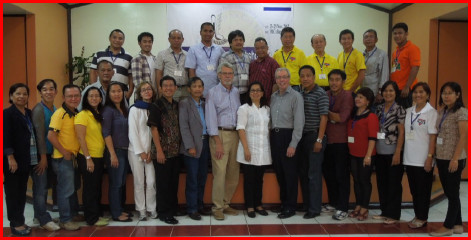 To introduce the concepts and ideas and help develop the spirit of philanthropy among the Executive Com-mittee Members and their respective movements including national presidents and national general secretaries, an orientation session and case story sharing from the APAY volunteer consultant, Mr. Ron Coulombe from Edmonton, Canada and Mr. Manuel Camarena from YMCA of Mexico was held immedi-ately after the Executive Committee business meetings. From that orientation and sharing sessions, the participating national movements realized that it is possible to develop resource mobilization framework and approaches as shared from experiences of volun-teer consultants’ tested concepts, principles and approaches and to be adopted and developed based on individual movement’s context. It was after that event that we heard expressions of interest from different movements that they were willing to explore and organize the workshops. To introduce the concepts and ideas and help develop the spirit of philanthropy among the Executive Com-mittee Members and their respective movements including national presidents and national general secretaries, an orientation session and case story sharing from the APAY volunteer consultant, Mr. Ron Coulombe from Edmonton, Canada and Mr. Manuel Camarena from YMCA of Mexico was held immedi-ately after the Executive Committee business meetings. From that orientation and sharing sessions, the participating national movements realized that it is possible to develop resource mobilization framework and approaches as shared from experiences of volun-teer consultants’ tested concepts, principles and approaches and to be adopted and developed based on individual movement’s context. It was after that event that we heard expressions of interest from different movements that they were willing to explore and organize the workshops.
There were one hundred sixty five (165) participants in the series of workshops conducted in the Asia and Pacific Region, from APAY Executive Committee meeting in March, North India groups of YMCA which was held in Pune, India; the Southern India group of YMCAs which was held in Trivandrum, India; in Negombo, Sri Lanka, all these were held in October, the group of YMCAs in the Philippines held in Baguio, Philippines and with the Advance Studies participants both of which were held in November. The total goal for the series of work-shops reached US$238,800 and out of that, the total amount of US$ 58,800 or about 25% was raised through pledges during the campaign launches.
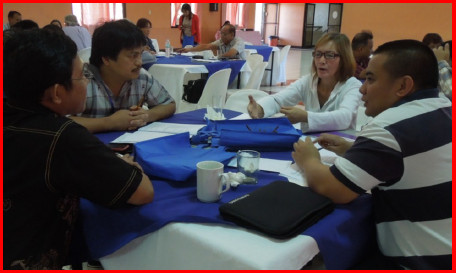 The Asia and Pacific Alliance of YMCAs have recruited and assigned five (5) volunteer consultants including Mr. Ron Coulombe from Edmonton, Canada, Ms. Brenda Blakovich from Kentucky, USA, Ms. Jamie Inman from Greenville, USA, Ms. Jessica Rawn from Canada and Mr. Paul Andresen from Anaheim, USA. There were sixteen (16) local leaders identified and invited and three (3) national coordinators and point persons in each of the nation-al movements. These leaders will be prepared to help set-up the campaign infrastructure to ensure that all pledges were collected and donors are appre-ciated and thanked for their gifts; volunteer services and support are properly recognized; and that contri-butions are well managed as well as invested for its purposes; and more importantly, to get prepared, and serve as presenters for the Year 2 workshop and Annual Fund Campaign within their own local and in the same group of YMCAs but with new and more participants and also help in the Year 3 work-shops for Capital Fund Campaigns and other succeeding campaign events. These leaders are also the ones who will ensure that momentum is sustained and feedbacks are taken and shared to track the progress everyone is making together with their assigned area volunteer consultants. Some of them may also be requested to share/present their success stories in the regional events such as Execu-tive committee and other appropriate meetings. The Asia and Pacific Alliance of YMCAs have recruited and assigned five (5) volunteer consultants including Mr. Ron Coulombe from Edmonton, Canada, Ms. Brenda Blakovich from Kentucky, USA, Ms. Jamie Inman from Greenville, USA, Ms. Jessica Rawn from Canada and Mr. Paul Andresen from Anaheim, USA. There were sixteen (16) local leaders identified and invited and three (3) national coordinators and point persons in each of the nation-al movements. These leaders will be prepared to help set-up the campaign infrastructure to ensure that all pledges were collected and donors are appre-ciated and thanked for their gifts; volunteer services and support are properly recognized; and that contri-butions are well managed as well as invested for its purposes; and more importantly, to get prepared, and serve as presenters for the Year 2 workshop and Annual Fund Campaign within their own local and in the same group of YMCAs but with new and more participants and also help in the Year 3 work-shops for Capital Fund Campaigns and other succeeding campaign events. These leaders are also the ones who will ensure that momentum is sustained and feedbacks are taken and shared to track the progress everyone is making together with their assigned area volunteer consultants. Some of them may also be requested to share/present their success stories in the regional events such as Execu-tive committee and other appropriate meetings.
ELOISA BORREO
YMCA Secretaries Training, United Theological College,
Bangalore, South India
The National Council of YMCAs of India has a century old tradition of organizing Training Programs for the YMCA Secretaries in India. The Training Department is situated in United Theologi-cal College, Bangalore. South India. YMCA Secretaries of India do participate in this Training Program, however, as a part of inter-movement solidarity, the National Council of YMCAs of India also seeks applications from interested YMCA Secretaries belonging to other YMCA movements in the region of Asia and Pacific.
The medium of teaching is in English, a basic knowledge of English is compulsory for the partici-pants. The course duration is of one year starting from July 2013. The subsidized fee of the training is around US$ 1,100, this includes tuition, board-ing, lodging, food and other training programs including intensive field education program.
YMCA Secretaries interested to participate in the program can contact Mr. George Varghese, Director, YMCA Training and Leadership Depart-ment, at ymca_trg_india@rediffmail.com or Mr. John Varughese, National General Secretary, National Council of YMCAs of India, at ngsym-caindia@gmail.com .
The deadline for receiving applications for the Training 2013-2014 is on 15th January 2013.
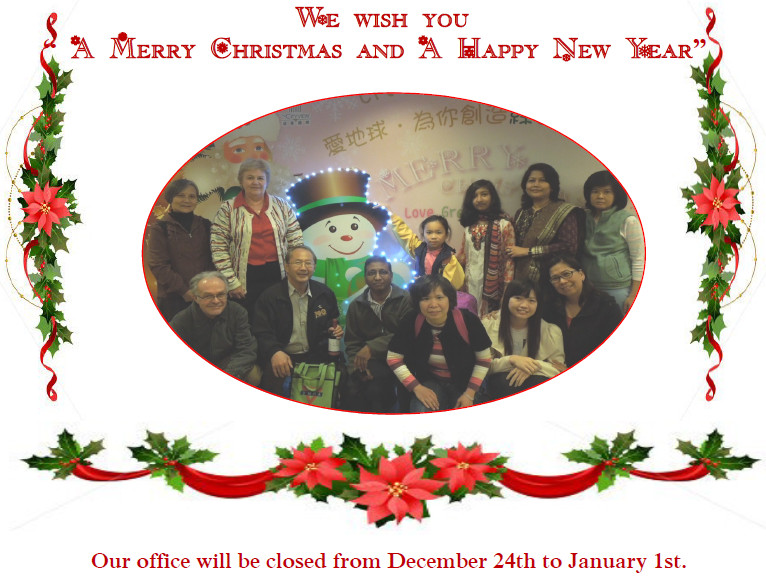
|
